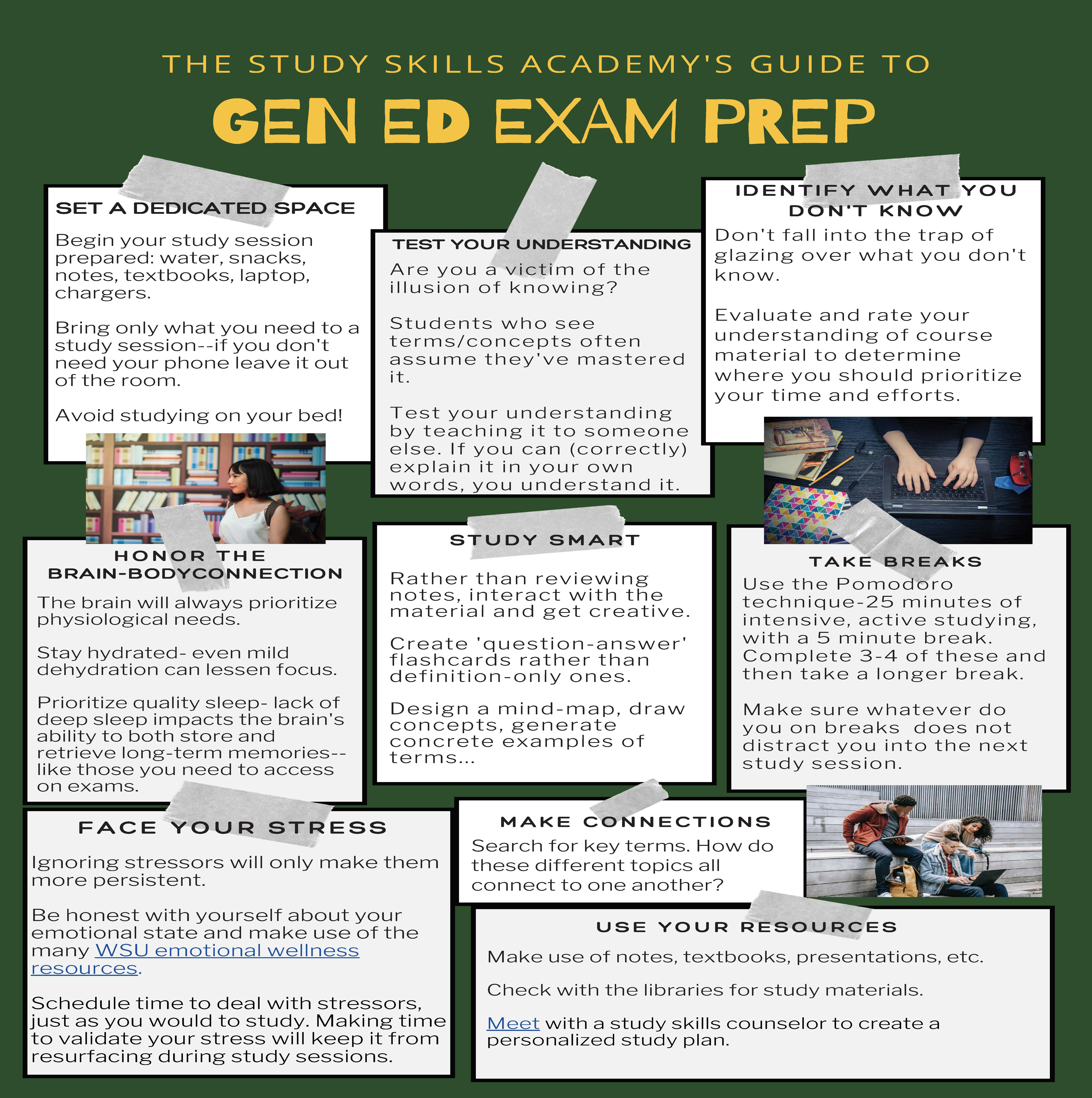Student Success
General Education courses often require you to step outside of your comfort zone. Your courses may be outside of your comfort zone, and they may require you to utilize skills that you struggle with. But that's exactly the point of General Education - to give everyone the chance to build core skills that are important for success in college and beyond, regardless of your major. That doesn't change the fact that it can be hard to learn something new, however.
It's important to remember that you're not in this alone! We're here to help support your success throughout your General Education journey. We encourage you to utilize the wide range of resources available to you. That starts with your professors and your classmates. Attend office hours, set up study sessions, use the assigned course material, take notes, and ask questions. If you need help with study skills or note-taking the Study Skills Academy has a range of resources to help support you, including Procrastination Accountability Groups, Student Success Workshops, Academic Stress Support Groups, and Succeeding in the Sciences Groups. To learn more, enroll in their Canvas course or sign up for a free one-on-one counseling session.
We also encourage you to take your Wayne Experience course and your Competency requirements (Basic Composition, Intermediate Composition, Oral Communication, and Quantitative Reasoning) as early in your Wayne State career as possible to set yourself up for success in other parts of the program. Contact your advisor who is ready to help you plan out your schedule!
Within your Gen Ed courses, there are a number of strategies that you can employ to help improve performance on your assignments.
The Study Skills Academy's Guide to Gen Ed Exam Prep
Set a dedicated space
- Begin your study session prepared: water, snacks, notes, textbooks, laptop, chargers.
- Bring only what you need to a study session - if you don't need your phone leave it out of the room.
- Avoid studyign on your bed if possible!
Test your understanding
- Are you a victim of the illusion of knowing?
- Students who see terms/concepts often assume they've mastered them.
- Test your understanding by teaching it to someone else. If you can (correctly) explain it in your own words, you understand it.
Identify what you don't know
- Don't fall into the trap of glazing over what you don't know.
- Evaluate and rate your understanding of course material to determine where you should prioritize your time and efforts.
Honor the brain-body connection
- The brain will always prioritize physiological needs.
- Stay hydrated - even mild dehydration can lessen focus.
- Prioritize quality sleep - lack of deep sleep impacts the brain's ability to both store and retrieve long-term memories - like those you need to access on exams.
Study smart
- Rather than reviewing notes, interact with the material and get creative.
- Create "question-answer" flashcards rather than definition-only ones.
- Design a mind-map, draw concepts, generate concrete examples of terms.
Take breaks
- Use the Pomodoro technique - 25 minutes of intensive, active studying, with a 5-minute break. Complete 3-4 of these and then take a longer break.
- Make sure whatever you do on breaks does not distract you in the next study session.
Make connections
- Search for key terms. How do these topics all connect to one another?
Face your stress
- Ignoring stressors will only make them more persistent.
- Be honest with yourself about your emotional state and make use of the many WSU emotional wellness resources.
Use your resources
- Make use of notes, textbooks, presentations, etc.
- Check with the libraries for study materials.
- Meet with a study skills counselor to create a personalized study plan.
Get tips for success from General Education instructors
Do you have your own special tips that have helped you succeed in Gen Ed courses? Would you be willing to share those with us? If so, please contact us at gened@wayne.edu.
